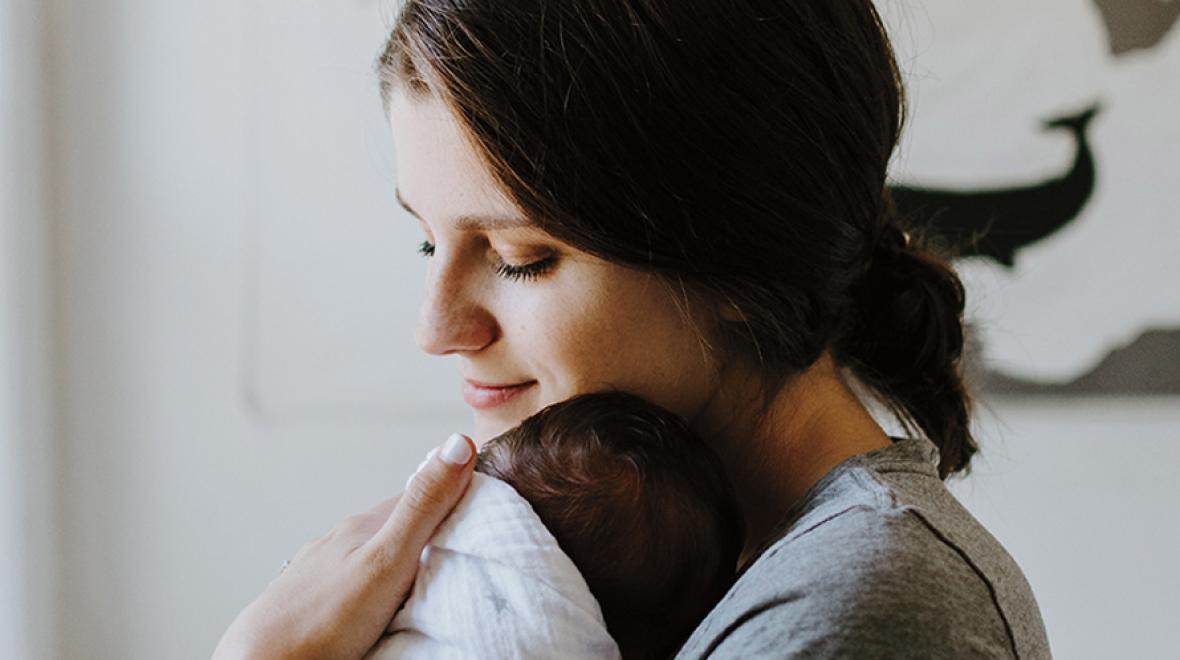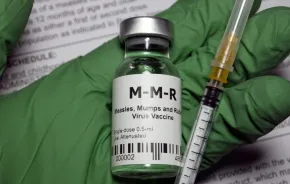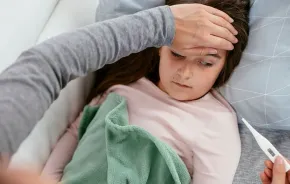
Photo:
Credit: Kelly Sikkema, Unsplash
Editor's note: This article was sponsored by THIRA Health.
As many as 1 in 5 new mothers will experience postpartum depression (PPD), according to the Centers for Disease Control and Prevention. During the current period of social distancing, the rates of PPD are likely higher, says PPD specialist and psychiatrist Tuesday Burns, M.D., medical director of THIRA Health, a mental health treatment center for women and girls in Bellevue.
Postpartum depression has long been common in the United States, and even more so in the developing world, says Burns. But as the pandemic increases worry and removes social supports for new and expectant parents, women are more vulnerable to PPD, because stressful life events (the ongoing pandemic certainly qualifies as stressful) and scarcer social support are risk factors for depression.
“Risk factors [for PPD] are being amplified by the pandemic,” says Burns. “We have limited social supports, isolation, as well as medical concerns like transmission of the virus and worries over whether new mothers will be separated from their newborn if they develop a fever during labor. Women may have to labor alone or without members of their birth team. Then, after the birth, they have a tiny new vulnerable human to care for. These are all huge sources of stress for women.”
“We don’t have current statistics on rates for PPD in 2020, but it’s very clear from the number of women reaching out for help right now that PPD rates are absolutely paralleling the current pandemic,” says Burns. “While some studies show the rates of PPD to be 1 in 5 women, I imagine those numbers during COVID, when we collect them, will be much higher.”
Protecting against PPD
With ramped-up risk factors, it’s more important than ever for new and expectant parents to be aware of the signs of PPD, says Burns. Symptoms include increased tearfulness, inability to feel joy, lack of interest in your baby or other relationships, and fears about hurting your child or yourself.
“Providers ask new mothers about these things around two weeks postpartum to get a baseline, but it’s important for women to feel safe and empowered to talk about these symptoms anytime they come up,” notes Burns.
Stressors such as difficulties with the baby’s sleep or feeding in the weeks after birth increase a new mother’s risk for PPD, along with a previous history of PPD or unipolar or bipolar depression, says Burns. “For women with a history of depression, we problem-solve ahead of time to help plan how to cope with these types of stressors.”
Women can also protect themselves by building a robust support team of medical professionals and loved ones well ahead of their due date, she notes. “Becoming engaged with a psychiatrist and a therapist during pregnancy is something I recommend to all women with a history of PPD,” says Burns. “When these supports are in place ahead of time, there can be lots of liaising between the OB-GYN, the therapist and the psychiatrist.”
A new mother’s partner, close relatives and others in her immediate circle are also important members of a postpartum support team, says Burns. “We want to make sure there are lots of supports to look forward to in the postpartum period, whether that’s a doula, friends and family, or a new-parent support organization like PEPS, which is very active here in Seattle and right now is conducting all support groups virtually.”
Preserve sleep
One of the most effective protections against PPD is getting enough sleep, a perennial challenge for new parents that may be even more difficult right now. “With social distancing, we have fewer people able to come into the home to help relieve the new mom for a few hours so she can sleep. Grandparents or other family members may not be available to help,” says Burns.
Because protecting sleep is part of protecting against PPD, families should plan ways to allow new mothers to rest for at least a few uninterrupted hours each night and nap as needed during the day. This may mean taking shifts with a partner during the night, even if that partner needs to get up in the morning for work — a mother’s sleep is important enough to prioritize, notes Burns.
Give yourself space and grace
PPD affects women around the world, regardless of profession, education level or socioeconomic background, says Burns. “Depression causes people to view things through a distorted, hazy lens, so a lot of women will think, ‘I’m not doing a good enough job and I need to try harder.’ They internalize it, and it feels shameful because it’s not talked about openly. The truth is you did nothing wrong. This is a biologic blip, and it’s treatable.”
For information, support and resources, visit Postpartum Support International or contact the PSI Helpline at 1-800-944-4773. For more information about THIRA’s programs, visit thirahealth.com.
|
Sponsored by: |

|











